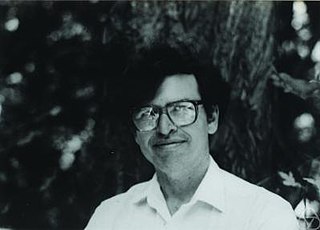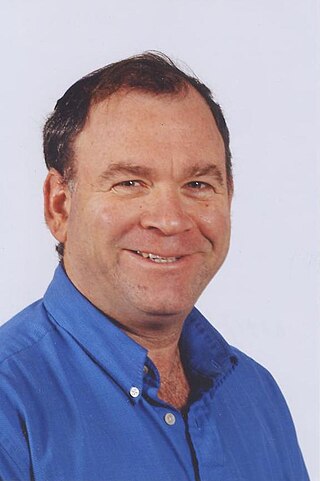
William Paul Thurston was an American mathematician. He was a pioneer in the field of low-dimensional topology and was awarded the Fields Medal in 1982 for his contributions to the study of 3-manifolds.

Charles Louis Fefferman is an American mathematician at Princeton University, where he is currently the Herbert E. Jones, Jr. '43 University Professor of Mathematics. He was awarded the Fields Medal in 1978 for his contributions to mathematical analysis.

Jean Louis, baron Bourgain was a Belgian mathematician. He was awarded the Fields Medal in 1994 in recognition of his work on several core topics of mathematical analysis such as the geometry of Banach spaces, harmonic analysis, ergodic theory and nonlinear partial differential equations from mathematical physics.
Gregory Francis Lawler is an American mathematician working in probability theory and best known for his work since 2000 on the Schramm–Loewner evolution.

Gil Kalai is an Israeli mathematician and computer scientist. He is the Henry and Manya Noskwith Professor Emeritus of Mathematics at the Hebrew University of Jerusalem, Israel, Professor of Computer Science at the Interdisciplinary Center, Herzliya, and adjunct Professor of mathematics and of computer science at Yale University, United States.
Daniel Alan Spielman has been a professor of applied mathematics and computer science at Yale University since 2006. As of 2018, he is the Sterling Professor of Computer Science at Yale. He is also the Co-Director of the Yale Institute for Network Science, since its founding, and chair of the newly established Department of Statistics and Data Science.

Alexander Lubotzky is an Israeli mathematician and former politician who is currently a professor at the Weizmann Institute of Science and an adjunct professor at Yale University. He served as a member of the Knesset for The Third Way party between 1996 and 1999. In 2018 he won the Israel Prize for his accomplishments in mathematics and computer science.

Marcelo Miranda Viana da Silva is a Brazilian mathematician working in dynamical systems theory. He proved the Zorich–Kontsevich conjecture together with Artur Avila.

Lai-Sang Lily Young is a Hong Kong-born American mathematician who holds the Henry & Lucy Moses Professorship of Science and is a professor of mathematics and neural science at the Courant Institute of Mathematical Sciences of New York University. Her research interests include dynamical systems, ergodic theory, chaos theory, probability theory, statistical mechanics, and neuroscience. She is particularly known for introducing the method of Markov returns in 1998, which she used to prove exponential correlation delay in Sinai billiards and other hyperbolic dynamical systems.

Emmy Murphy is an American mathematician and a professor at the University of Toronto, Mississauga campus. Murphy also maintains an office at the Bahen Centre for Information Technology. Murphy works in the area of symplectic topology, contact geometry and geometric topology.
Vincent Pilloni is a French mathematician, specializing in arithmetic geometry and the Langlands program.

Josselin Garnier is a French mathematician.
Ivan Smith is a British mathematician who deals with symplectic manifolds and their interaction with algebraic geometry, low-dimensional topology, and dynamics. He is a professor at the University of Cambridge.
Serge Marc Cantat is a French mathematician, specializing in geometry and dynamical systems.
Jack A. Thorne is a British mathematician working in number theory and arithmetic aspects of the Langlands Program. He specialises in algebraic number theory.

Dmitry Sergeevich Chelkak is a Russian mathematician.

Laurent Fargues is a French mathematician working in number theory and arithmetic geometry.

Christian Lubich is an Austrian mathematician, specializing in numerical analysis.
Benjamin E. Rossman is an American mathematician and theoretical computer scientist, specializing in computational complexity theory. He is currently an associate professor of computer science and mathematics at Duke University.

Xuhua He is a Chinese mathematician and Chair Professor at the University of Hong Kong.













